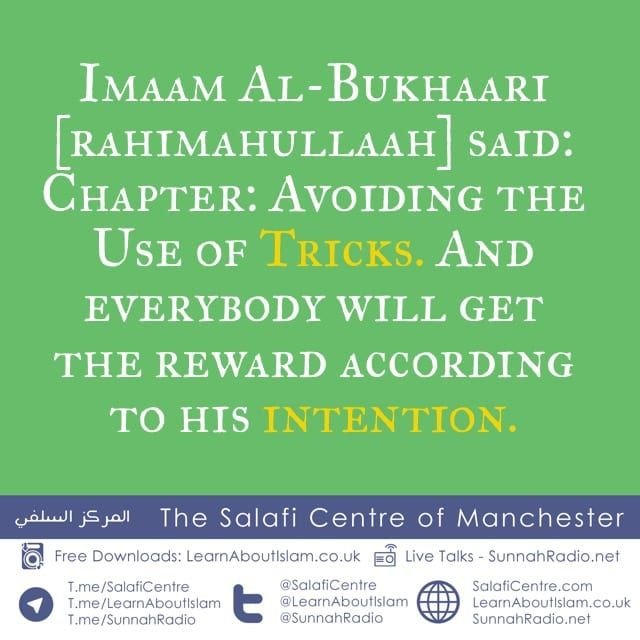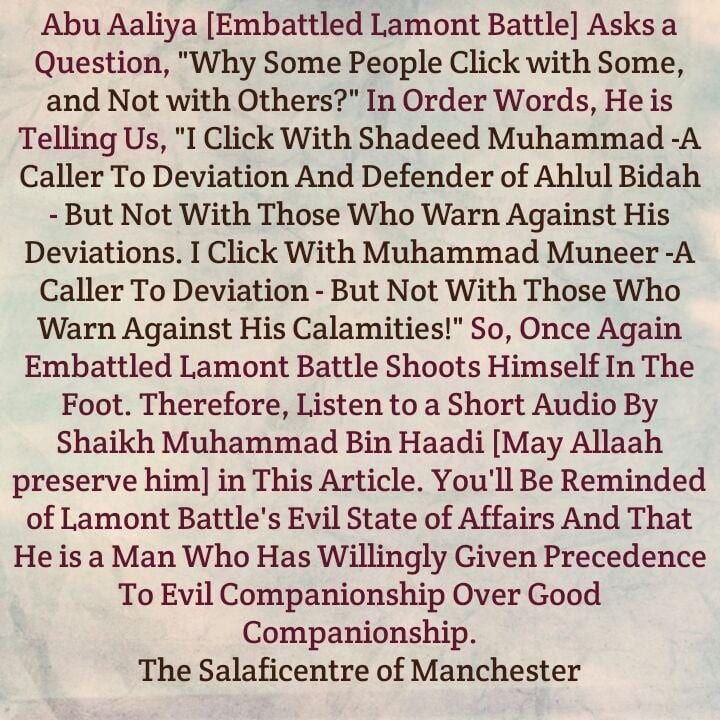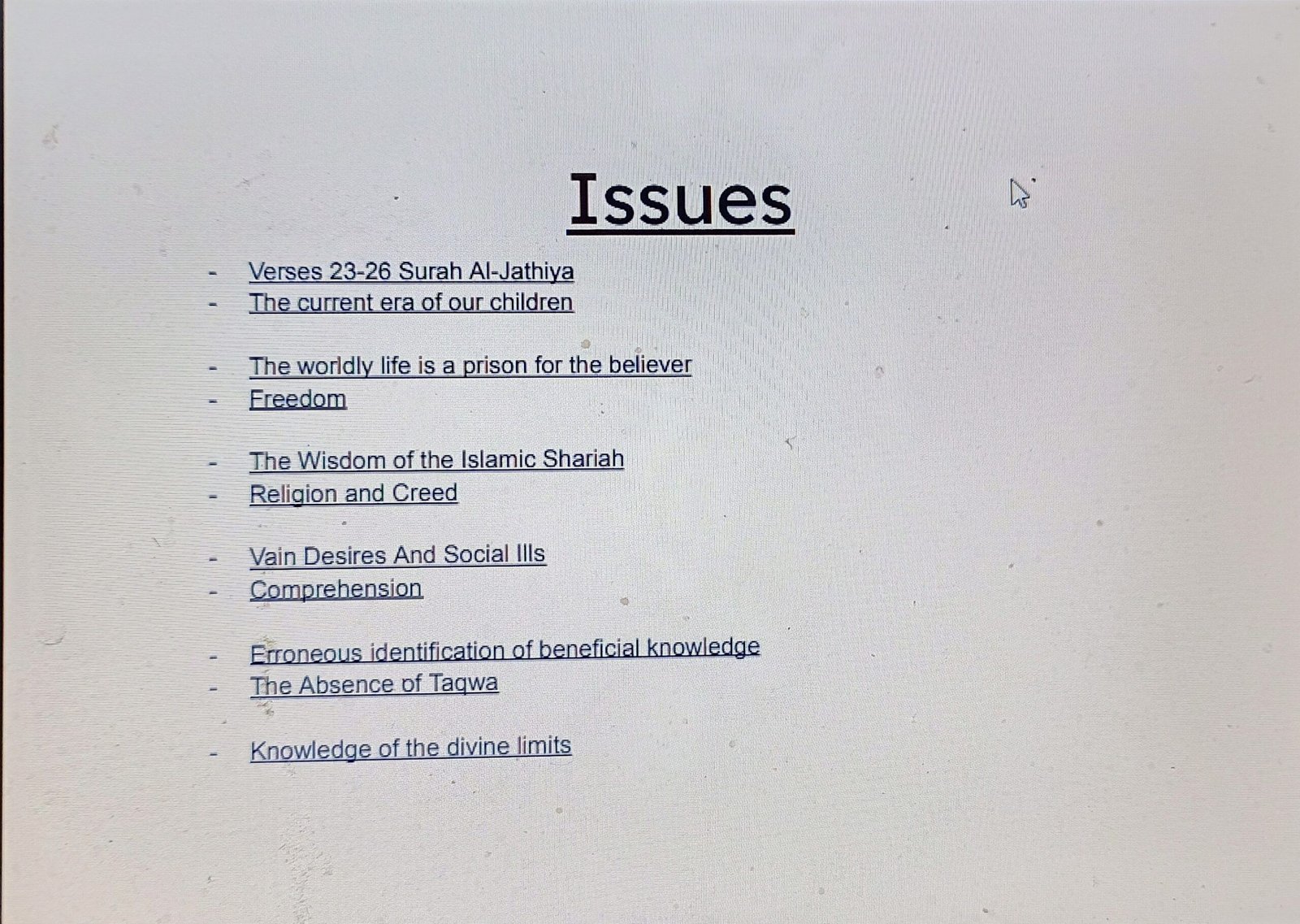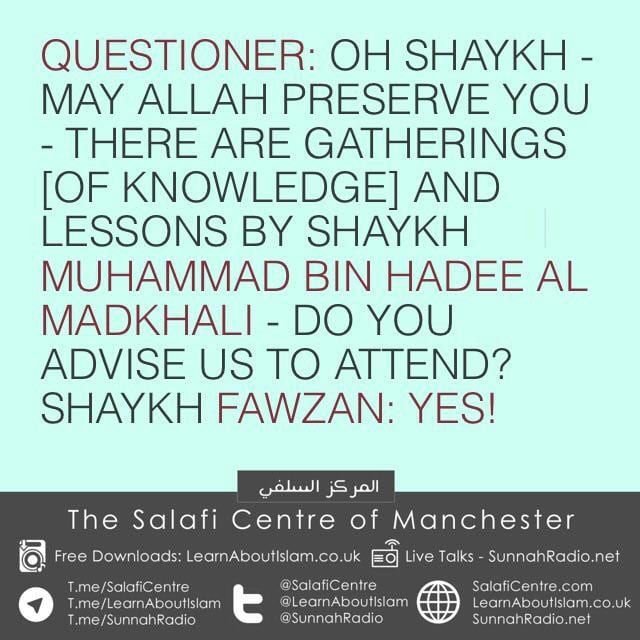بسم الله الرحمن الرحيم
Indeed the great virtues of the scholars and their station is well-known to all who adhere to the blessed methodology of Salafiyyah and learn it; be them from the times of the early generations such as the muhaddith al-Imam al-Bukhary and the great Imam Ahmad – the one who is put forth as an example of courage and resoluteness -, or those who came later in history, the likes of the great Imam ibn Taymiyyah and his students ibn ul-Qayyim, ad-Dhahaby, ibn abdul-Hady and ibn Kathir amongst others, and recently the likes of the reviver al-Imam Mohammad bin abdul-Wahhab….until we arrive at our present generation with the likes of al-Imam ibn Baz, ibn al-Uthaymeen and al-Albany [رحمهم الله أجمعين], as well as the likes of those we are blessed with in our presence today, Shaikh al-Fawzaan, Shaikh Luhaydan, Shaikh Rabee’ bin Haady, Shaikh Zaid bin Haady, Shaikh ‘Ubayd al-Jabiry [حفظهم الله] amongst many others from the people of knowledge and virtue in our time.
Much admonition may be derived from the lives of such shining lights; in their behaviours and morals, in their dealings with the people – old and young, students of knowledge and otherwise -, in their gentleness and kindness, as well as their firmness when required.
The following series of articles will be narrations of actual events that occurred and were witnessed from our noble scholars during our years at the Islamic University of Madinah [2004 – 2010], in order that we may take lessons from their mannerisms – mannersims that eminate from a detailed understanding of the Qur’an and Sunnah.
Shaikh Mohammad bin abdul-Wahhab al-Banna رحمه الله تعالى:
Upon a visit to Makkah for the purpose of performing the ‘umra in approximately the year 2005, we approached the Shaikh whilst he was sitting at his usual location in al-Masjid al-Haram. We proceeded to greet the Shaikh and ask concerning his health and general well-being. The Shaikh had been sitting reciting the Qur’an prior to our arrival, however he had momentarily ceased his recitation to greet us…after a moment or two once the greetings had concluded, and perhaps a short question or two had been asked and answered, the Shaikh turned to us and said [paraphrased];
“Please excuse me, please excuse me but I need to return to the recitation of the Qur’an….I am an old man now….my days are nearing the end, the grave is close….please allow me to gather my deeds in this remaining opportunity by way of reciting the Qur’an, for indeed every letter recited is 10 rewards……”
By Allah, the softness of the voice in which he spoke and the expression upon his face, a man of the Sunnah in his 90’s “requesting” from a group of youth some 60 years younger than him permission to continue reciting the Book of Allah, it was sufficient for every individual to embrace silence and leave the Shaikh in peace to continue upon his worship….whilst at the same time contemplating our own state of affairs in our worship and our shortcomings.
So indeed, the one who wishes to contemplate will certainly find admonishment in the example of one of the slaves of Allah – the noble Shaikh Mohammad bin abdul-Wahhab al-Banna – at an age only years from a century – remaining firm upon his obedience and finding the energy and strength to perform his worship, not desiring that any moment be taken from that time.
Certainly, this is the same as the example of the Salaf us-Salih, for indeed the one who contemplates their biographies recognises the value and importance of time. This religion, is indeed, knowledge and actions.











